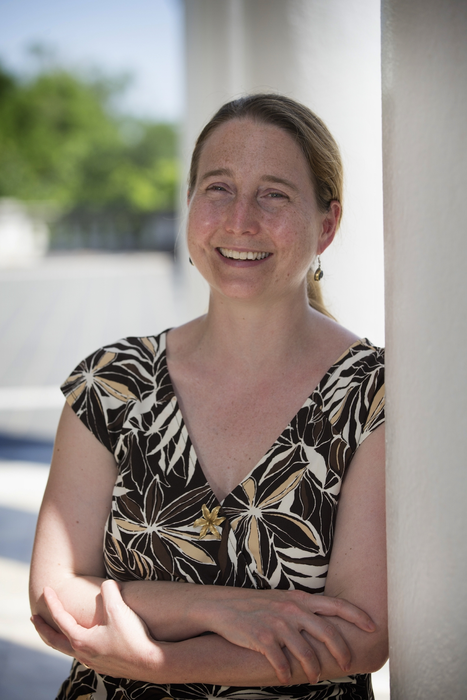With opioid-overdose deaths reaching an all-time high during the COVID-19 pandemic, a new app developed at UVA Health is helping people struggling with opioids get the care they need.

Credit: Dan Addison | UVA Communications
With opioid-overdose deaths reaching an all-time high during the COVID-19 pandemic, a new app developed at UVA Health is helping people struggling with opioids get the care they need.
The app, called HOPE (Heal Overcome Persist Endure), aims to provide vital support to patients battling opioid-use disorder. HOPE offers app users an easy and secure way to connect with care providers, while an anonymous message board lets them share their experiences and build healing relationships with others who will understand the challenges they face.
An initial test of the app in a small group of patients at high risk of disengaging from their treatment programs found that more than half were still receiving care six months later, a number larger than expected. Further, some who stopped seeing their care providers continued to use the app – a testament to HOPE’s potential utility in connecting or re-connecting people to lifesaving care.
“We are excited to see that patients are using the app to stay engaged with recovery services,” said Rebecca Dillingham, MD, an infectious disease expert at UVA who helped develop the app. “We partnered with patients in the design of the app, and this helped to create a welcoming, low-barrier portal to facilitate staying in care.”
HOPE for Opioid Treatment
HOPE was born from the success of PositiveLinks, a similar app previously developed at UVA Health to assist patients with HIV. The development team took what they had learned during the creation and testing of PositiveLinks and customized it for people struggling with opioid use disorder. HOPE features several similar features, such as assistance in monitoring medication adherence and mood, but it also features content specific to opioid recovery, such as tracking substance use and marking experiences, good or bad, along the way.
“The HOPE features provided us important data to help monitor the recovery process in a unique way that we did not have access to before,” said Kelly Schorling, MSW, a social worker who implemented HOPE in her clinic as part of the study. “We were able to use the tracked information to provide more individualized care and address the identified treatment needs of each patient enrolled in the program.”
To gauge the utility of the app, the research team enrolled 25 volunteers receiving care at UVA’s opioid treatment clinic during the early days of the COVID-19 pandemic. Patients had to be at least 18 years old; if they didn’t have a smartphone, they were provided one, along with a prepaid phone plan.
Six months later, 14 of the participants – 56% – were still receiving care. Participants who reported that they had no trouble getting to the clinic were significantly more likely to be making their clinic visits than those who said travel was an obstacle. (Distance to treatment is a common problem for many rural residents battling opioids, and the opioid epidemic has hit rural areas particularly hard.)
The app developers say additional testing with larger groups is needed, but they have been encouraged by their initial results. The app, they believe, could offer important support for people on a difficult journey – support that can be carried right in their pocket.
“Our study suggests that patients possess the desire and motivation to stay engaged with providers and to remain in care,” says Jackie Hodges, MD, MPH, an infectious disease fellow involved with the study. “Ultimately, though, low barrier models of care need to be expanded to support that desire and more effectively meet patients where they are. An app like HOPE can facilitate that type of care, including coordination of needed social support services, like transportation.”
Findings Published
The researchers have described the app and its testing in the journals Addiction Science & Clinical Practice and Patient Education and Counseling. The papers are by Jacqueline Hodges, Marika Waselewski, William Harrington, Taylor Franklin, Kelly Schorling, Jacqueline Huynh, Alexa Tabackman, Kori Otero, Karen Ingersoll, Nassima Ait‐Daoud Tiouririne, Tabor Flickinger and Rebecca Dillingham.
The work was funded by the Virginia Department of Health and a UVA Helping to Heal Addiction Long-term (HEAL) grant.
To keep up with the latest medical research news from UVA, subscribe to the Making of Medicine blog at http://makingofmedicine.virginia.edu.
Journal
Addiction Science & Clinical Practice
DOI
10.1186/s13722-022-00296-4




